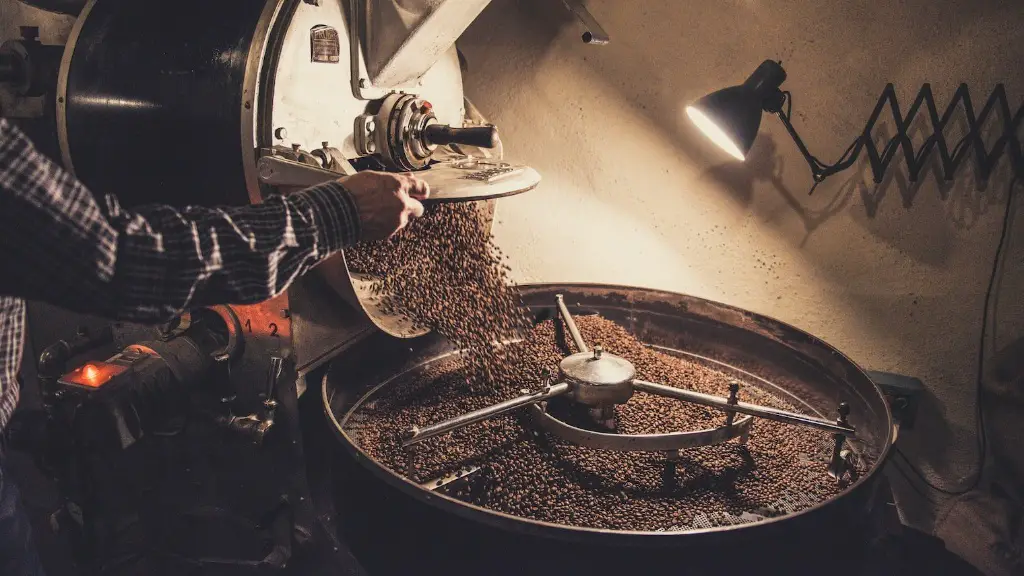Many people enjoy drinking coffee and have done for centuries. It has become such a popular beverage that some children even drink it. It is important to understand the age to drink coffee, what the risks are, and what experts recommend.
When it comes to drinking coffee, some children and adolescents choose to drink it. While it may be tempting to give them the same drink as adults, it is important to understand that their internal mechanisms are not fully developed. Experts agree that it is not appropriate for children under the age 12 to drink coffee or any caffeinated beverage. Until the age of 12, the body’s chemistry is not yet ready for the absorption of caffeine. The use of caffeine in children can interfere with calcium absorption and cause cardiovascular damage over time.
At 12 years old, the body is ready to begin absorbing caffeine, but it is important to note that it is still not advisable to consume large amounts of it every day. Depending on the individual, the effects of drinking coffee can vary. Some people can feel energised and more confident, while others suffer from feelings of nervousness and anxiety. It is recommended that a parent should monitor their child’s intake of caffeine and encourage them to find healthier alternatives if they are feeling the effects of the caffeine too strongly.
When it comes to adults, different experts have different opinions on the appropriate intake of coffee. Some recommend drinking only one cup of coffee a day, while others recommend up to three to five cups per day. Generally, it is believed that drinking too much coffee (over five cups) can increase the risk of heart disease and stroke. Additionally, drinking coffee at night can interfere with sleep habits and prevent a person from getting the rest that their body needs.
Coffee Consumption in Different Cultures
Coffee consumption varies from culture to culture. In the United States, it is common to see coffee consumption start in adolescence and increase with age. However, in other countries, coffee consumption can start at a very young age. In Italy, for example, it is common to see young children drinking coffee. This can be attributed to the country’s culture and the fact that coffee is a socially accepted beverage.
In countries where coffee consumption is very high, such as Italy, it is important to be aware of the effects of drinking too much. Caffeine is a drug, and when consumed in high doses can lead to anxiety, jitteriness, headaches, and insomnia. It is important to monitor caffeine intake and be aware of the potential effects.
Health Benefits of Coffee
Despite the potential risks of drinking too much coffee, it is important to recognise the potential health benefits that come with drinking coffee in moderation. Studies have found that moderate coffee consumption (1-3 cups per day) can reduce the risk of developing type 2 diabetes, stroke, and certain types of cancer. Additionally, drinking coffee can increase concentration and alertness, improve mood, and give an energy boost.
It is important to remember that the benefits of drinking coffee will be limited if good eating habits are not also followed. Eating a healthy and balanced diet will help the body absorb the nutrients it needs to stay healthy and energised. Additionally, regular exercise is important for overall health and wellbeing.
Alternatives to Coffee
For those who want to reduce their caffeine intake, there are plenty of alternatives to coffee. Decaffeinated coffee is one option, and there are also plenty of herbal teas and natural energy drinks that contain fewer or no caffeine. Additionally, many people choose to substitute coffee with tea, hot chocolate, and other hot beverages.
It is important to remember that each person is different and the effects of caffeine are different for everyone. It is recommended to start slowly and increase or decrease intake depending on an individual’s response. Additionally, it is important to remember that moderate consumption is key for optimal health benefits.
Risks of Caffeine Consumption
Caffeine is a powerful drug and can have powerful side effects. Even in moderation, caffeine can pose serious health risks for those who have existing cardiovascular conditions or those who are pregnant. It is important to talk to a doctor if there are existing health concerns before consuming coffee or any other caffeinated beverage.
Caffeine is also addictive and many people struggle to break the habit of drinking coffee every day. Some studies suggest that caffeine withdrawal can cause physical and mental fatigue, headaches, depression, and irritability. It is important to recognise these signs and seek medical help if necessary.
Coffee and Mental Health
Coffee has been linked to both positive and negative mental health consequences. For those who are prone to anxiety, caffeine can further increase their levels of anxiety. On the other hand, some studies suggest that moderate caffeine consumption can improve concentration and alertness, as well as reduce depression and stress.
It is important to remember that the effects of caffeine can vary from person to person and environmental factors can also play a role in how coffee affects someone. It is important to learn about one’s own response to caffeine and experiment with different doses to find the right balance.
The Benefits of Drinking Coffee in Moderation
Overall, it is important to understand the risks of consuming too much caffeine and the effects it can have on the body. For those aged over 12, moderate coffee consumption can provide some health benefits, however, the risks should still be considered.
When it comes to consuming coffee, the main thing to remember is moderation. Drinking too much coffee can lead to health problems, especially when consumed by those who have existing conditions or those who are pregnant. It is important to know one’s own limits, start slowly, and increase or decrease intake as necessary.
Affordability of Coffee
In addition to the health considerations, affordability is also important to take into consideration when it comes to drinking coffee. Many people cannot afford to purchase expensive coffee every day, so it is important to explore ways to get a quality drink without breaking the bank. Home brewing of coffee, such as the French press or pour-over method, is a great way to save money. Additionally, there are plenty of affordable options at cafes and grocery stores.
It is important to understand that not all coffees are created equal and not all coffees will deliver the same flavour profile. Investing in a good quality coffee bean can make a huge difference in terms of taste, and most importantly, become a much more affordable option in the long run.
Coffee Brewing Methods
For those who want to make their own coffee at home, understanding and exploring different brewing methods is key. Different brewing methods can lead to different tasting coffees and the extraction of different flavours from the same bean. Investing in a good quality coffee maker is an essential, and having a grinder on hand can help to get the most out of the coffee bean.
For those who are new to coffee, trying to get a good cup of coffee can seem daunting. However, with a bit of practice, experimentation, and exploration of different brewing methods, it is possible to get a great cup of coffee right in the comfort of their own home.
Coffee Sustainable Practices
In recent years, much more attention has been paid to coffee sustainability. This involves looking at the practices coffee farmers use for their land and labour, and ensuring that prices for coffee beans are fairly reflected in what farmers are paid. Additionally, coffee companies are looking at their environmental practices, such as recycling and composting, to reduce their environmental impact.
When it comes to coffee consumption, it is important to consider where one’s coffee is coming from. There are a growing number of coffee companies, both online and offline, that are looking at sustainable practices and ethical sourcing. Taking the time to research coffee companies and their practices is a great way to ensure that one’s coffee consumption practices are sustainable and ethical.
The Art of Drinking Coffee
Although the basics of coffee brewing may seem simple and straightforward, there is an art to drinking coffee. Taking the time to explore the different tastes, aromas, and textures of coffee can be a rewarding and satisfying experience. From the smell of freshly brewed coffee to the taste of different coffee beans, there is much to explore in the world of coffee.
Brewing one’s own coffee at home can be a great way to bring the art and culture of coffee into the home. Whether it is the use of an espresso machine, the French press, or the pour-over method, taking the time to learn and explore different brewing methods will lead to a better cup of coffee in the end.





